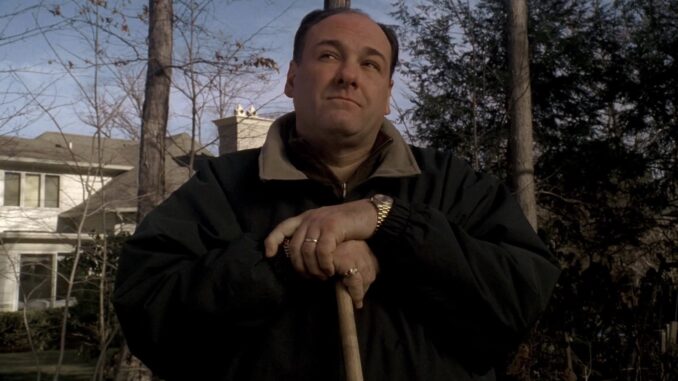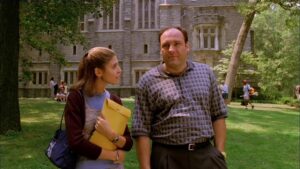
I was not able to watch The Sopranos when it was on the air, so I can’t fathom what it was like being introduced to Tony and his family at the time. But I can tell you what it was like when I was streaming the show for the first time years later.
You knew who Tony was—as one of the made men, the heads of a crime family—but you didn’t know him as a merciless killer.
Well, season one, episode five changed all of that. It ushered in the era of the antihero on television and paved the way for audience acceptance of rooting for the bad guy. It is David Chase’s favorite episode of the series and one that lots of people love to talk about.
How Did the College Episode of The Sopranos Change TV Forever?

As I mentioned in the opening, this was the first time we saw an antihero on television. This wasn’t just some character shooting someone else. This was a guy sneaking up on someone and graphically choking him to death.
At the time, HBO was terrified it would alienate audiences. The network was so worried that showing Tony for who he really was this early on would make people cringe, and turn audiences against the series.
Second, the show’s B-story featured Tony’s wife, Carmela, trying to seduce her priest, the only person in her world that puts in the effort to love and understand her.
These were world turns that Chase and the writers didn’t compromise on, though they did show that Tony’s snitch was dealing drugs, making his death more palatable.
Aside from those turns, the episode was hyper focused on Tony and Carmela and their relationship with their kids. Away at college, Tony and Meadow enjoy a weekend of trust, where she asks him if he’s in the mafia. While not explicitly answering “Yes,” he does admit to making money illegally.
Carmela and AJ are very different, with the son abandoning the mother and staying over at a friend’s house for the evening.
It’s also rich in symbolism, with Tony watching the ducks fly after committing the murder. The same thing that gave him a panic attack in the pilot now brings him some peace.
But all is not well. Tony lies to Meadow when she questions the mud on his loafers and cut on his hand. We go from their trust and acceptance to a broken relationship again. One that will only worsen over the series.
Finally, Tony takes Meadow to her final college and sits and reads this Nathanial Hawthorne quote from The Scarlet Letter on the wall: “No man for any considerable period can wear one face to himself, and another to the multitude, without finally getting bewildered as to which may be the truth.”
This is the worry Tony has within his life. It’s the idea that he wears multiple faces, but his true one is that of a mafioso and not of a father.
And like we said, TV just never had seen that before, but as Tony’s face paved the way, so many shows like Breaking Bad, The Wire, Mad Men, and Boardwalk Empire would follow. All had villains in leading roles, and none of them had to pull their punches, all thanks to one of Tony’s early whack victims.
